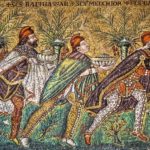 So, around 1987, when I was reading English at Somerville College, Oxford, Salman Rushdie read from Midnight’s Children at the Oxford University Majlis, the Indian society. And I stay up all night reading Midnight’s Children, transfixed. At least 95% of the novels, plays, poetry I had read until then had been written by British, American and European authors. Unconsciously, I thought of their countries, their lives, as the proper subject of literature.
So, around 1987, when I was reading English at Somerville College, Oxford, Salman Rushdie read from Midnight’s Children at the Oxford University Majlis, the Indian society. And I stay up all night reading Midnight’s Children, transfixed. At least 95% of the novels, plays, poetry I had read until then had been written by British, American and European authors. Unconsciously, I thought of their countries, their lives, as the proper subject of literature.
Rushdie’s India was 15 years older than mine, but definitely recognizable. So all lights blaze: the moment many writers describe when they realize: “I can make literature out of what I know and have experienced.”
I quickly write about 25 pages in a green felt pen. I must dig them out.
* * *
I move on to America, to a Master’s in Creative Writing, in Ohio State University, 1987-1989 and I choose to specialize in, not memoir, but poetry, the form in which, like many beginning writers, I instinctively wrote.
So, it’s all poetry: courses in poetry, reading it, writing it, in the interstices of taking classes, and teaching Freshman composition. And then I go on to a Ph.D in Creative Writing at SUNY Binghamton in 1989–taking classes, teaching classes, writing papers, grading papers, a romantic busyness: lots of reading, thinking and a little writing, but still…all I want to do is write.
I quit my Ph. D to get married, and suddenly get to write full time, as I had always wanted to. We wander around the US–to Cornell, New York, where Roy did a post-doc; to Stanford, California, another post-doc; and then to William and Mary, where he teaches. And I write poetry full time! And then I realize I’ve written through all the poem ideas I have, and am running dry.
* * *
I pick up memoirs, almost by chance. Patricia Hampl’s, A Romantic Education, describes, with verve and verisimilitude, a family in which food, and eating and drinking were shorthand substitutes for love—much like mine. Annie Dillard in “An American Childhood” describes an intense girlhood in Pittsburgh, a steel city like Jamshedpur in which I grew up. I read Frost in May, and Mary MacCarthy’s Memories of a Catholic Girlhood.
Dostoevsky describes his Prince Myshkin before an epileptic fit
“His brain seemed to catch fire at brief moments…. His sensation of being alive and his awareness increased tenfold at those moments which flashed by like lightning. His mind and heart were flooded by a dazzling light.”
So too mine. About 4 years after the original idea, I saw my childhood and adolescence as a subject over the next few week and months, and hundreds of little memories rushed in. I jotted them down and I burned with the desire to write the memoir. (As I do now).
* * *
And in the providence which shapes our ends, my husband, who had been teaching at William and Mary was offered a postdoc the University of Minnesota. I believed I could write anywhere, so was cool with going to Minneapolis, and my two years there turned out to be absolutely one of the most stimulating and creative periods of my writing life.
The Twin Cities, Minneapolis and St. Paul, had an active literary community, particularly in Creative nonfiction and memoir. I applied to a graduate course in Creative Nonfiction at the University of Minnesota to which I had to turn in a 10 page piece of writing. I wrote my first essay, “The Goblin Market” about the raucous open air markets, magical to a young child, and it won a Roberts Writing Award, $200.
Charlie Sugnet, my writing teacher at the University of Minnesota, and the weekly book excerpts he gave us to read opened the world of creative nonfiction to me. Annie Dillard says moving from poetry to creative nonfiction is like playing with the whole orchestra rather than a single instrument. Indeed.
* * *
Mini-magic happened. I had written two long essays that term in Charlie Sugnet’s class, one about my conversion experience, and one about working at Mother Teresa’s convent.
Within a few months, the two pieces won a Minnesota State Arts Board grant ($6000), a Jerome Foundation travel grant ($1800), a mentorship award with an established writer from the Asian community: David Mura.
Sugnet said that he could see my having a career. He suggested submitting a book about my experience in Mother Teresa’s convent to editors and agents. It was not, however, the book I wanted to write–I wanted to write a memoir of my early childhood. I visualized this period as the last 20-30 pages in it
But heck, I so wanted a published book and so I embarked upon a foolish quest that saddened and poisoned many years of my life–trying to write a book I was not truly in love with, and did not want to write with my whole heart. (Samina Ali, who was in one of these classes with me, described how she wanted to write about her arranged marriage to a Muslim gay man, but was so desperate for affirmation that she almost signed on to write a book called Demon Lover, about an incestuous relationship with her father.)
Lesson 1: Write the book YOU want to write, the one you are in love with, not the one you think might be successful
So I was trying to spin a book out of 14 months of my life, wasn’t whole-heartedly in love with it, and craved validation. I joined a writers’ group with my friend, the lovely writer (and human being!) Erin Hart. Took more writing and literature classes at the University and the Loft, a literary centre, at which I taught a course in creative nonfiction. I submitted my essays to magazines and for grants and prizes and fellowships, instead of keeping just writing, and finishing the doggone thing. Which meant I was always backing up and polishing what I’d already written instead of just writing. Going forward.
And since American creative writing classes are based on the workshop model: much time waswasted reading and critiquing other amateurs work instead of communing with the greats! And this is true, for both teachers and students!
Lesson 2 Get it done, get it down, get it written. Don’t seek validation. Seek mastery.
In my second year in Minnesota I went to a writers’ conference in New England, trying to get an agent and editor and a hypercritical, ungenerous teacher there shredded my work at the sentence and grammatical level (she didn’t like my contorted pretzel-like sentences) destroying my confidence, making me analyse my sentences, instead of just writing by instinct,
I took a course in grammar and editing which I perhaps did not need, but which helped me to write with the left brain too, and write better). More tiredness, more distraction, more time wasted.
Lesson 3: Take the critique of teachers with a grain of salt, assessing them. Avoid mean-spirited, frustrated, bitter ones: tormentors rather than mentors.
I used a tenth of the $6000 State Arts Board grant to work one on one with Carol Bly (ex-wife of Robert Bly!), who could go off on wild riffs of rage about ideas and sentences or grammatical constructions she did not like, or, but was also hyperbolically lavish with praise. All rather alarming for someone who was moving from poetry to prose and was just learning to write beautiful prose. She promised to send it to her agent when I had 100 beautiful pages.
More stress, more backing up and looking over my shoulder and obsessing over each word, each phrase, each sentence instead of looking at the big picture.
I started to write self-consciously, analytically, analysing each word, phrase, sentence, wanting them to be unassailable, joy turning to stress.
Lesson 4—Quit over-analysing. Write freely, write like a river. You will never write perfectly in this life. Why should you? You are not God.
Learn to let things go. Ship.
Knowing my work would be critiqued as it was being written I started getting frozen and blocked. There was a four page chapter over which I got blocked for four months in my perfectionism, which turned out to be–unnecessary!
Lesson 5 when blocked, read, read, read. You might instinctively stumble on a form and language. If you are blocked on a chapter, move on. Perhaps you don’t have to write it.
* * *
In the summer of 1993, I go to the Squaw Valley Writers Conference in California and meet Harper and Row editor, Ted Solotaroff and an agent, Virginia Barber, who express an enthusiastic interest in my manuscript about working with Mother Teresa.
I come back walking on air to Williamsburg, where we had returned despite my desperate desire to stay in Minneapolis.
My husband wasn’t hugely supportive; he was establishing his own career as a mathematician. Life was stressful, lots of battles about who’d do the dishes and the laundry and the cleaning and the tidying. And then we had Zoe, a lovely grinny baby–and writing time and energy was at a premium. I wrote and revised the manuscript through the tired first two years of her life.
When my second revision of my manuscript was rejected by the agent and editor in October 1996, I lay face down on the carpet and wanted to die.
Lesson 6: Never confuse strong enthusiastic interest for a signature on a piece of paper.
(I later met at least three established writers who this editor had expressed a strong interest in, led them on and dumped. Why?
Read my new memoir: Rosaries, Reading, Secrets: A Catholic Childhood in India (US) or UK.
Connect on Facebook: https://www.facebook.com/anitamathiaswriter/
Instagram: https://www.instagram.com/anita.mathias/
Twitter: https://twitter.com/AnitaMathias1
My book of essays: Wandering Between Two Worlds (US) or UK







I’m a scientist. I’ve never taken a writing class in my life – in fact the very thought of having to attend one brings me out in a nervous rash. My own sentences aren’t so much pretzels as Mobius strips but I do recognise passion and ability when I read it. More love, more power – and thanks.
Mmm, Mobius strip sentences sound very interesting. No, Anita, don’t go down that route. Am trying to write clearly and transparently after years of being enamoured by stylists like Rushdie and Nabokov!
As a matter of interest, I was at school with Rushdie – he was a year or so above me thus I didn’t know him. Share your admiration for Nabokov, there’s an achingly familiar melancholy about him which resonates with a professional Eeyore like me.
At Rugby? Was A.N. Wilson a contemporary of yours then? He was married to my tutor at Somerville, & they’d kindly invite me over for tea over Christmas!
Didn’t know him. But then, I was a spotty oik and, worse still, a day boy Foundationer scholar. Smart but poor.